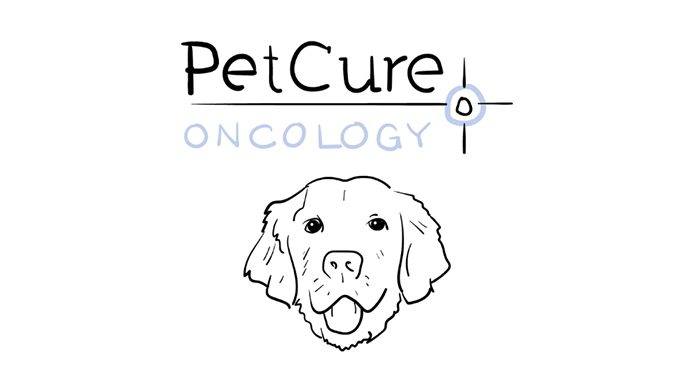Stereotactic Radiation (SRS/SRT) Treatment FAQ
What Is Stereotactic Radiation (SRS/SRT)? How Does It work?
Stereotactic radiation, also commonly referred to as SRS or SRT, is a new way to deliver advanced radiation therapy with increased effectiveness and efficiency. SRS/SRT is a non-surgical procedure that has been proven effective in human medicine and has emerged in veterinary medicine through PetCure Oncology’s national network of cancer care centers. With unprecedented precision – and often delivered with the intent to cure – SRS/SRT offers a host of benefits that make it a powerful option for many pets with cancer.
How Can SRS/SRT Be Completed In Just 1-3 Sessions When Traditional Radiation Therapy Takes 15-21 Sessions?
Because the technology that allows us to deliver SRS/SRT is so much more precise than traditional radiation therapy, a higher dose of radiation can be delivered to a target with each individual treatment session. That means that fewer sessions are necessary to achieve the same impact.
What About Radiation Side Effects?
The sub-millimeter precision associated with SRS/SRT allows for increased damage to the tumor while sparing the healthy tissues surrounding the tumor. As a result, this method of radiation therapy can minimize dose to healthy parts of the body and reduce the risk of complications and side effects often associated with traditional radiation therapy.
Can SRS/SRT treat tumors anywhere in the body?
SRS/SRT can be used to treat localized cancer almost anywhere in the body. In many cases, this includes tumors in locations that were previously considered challening to treat through surgery or traditional radiation therapy. Tumors in the brain or on the spine, for example, are historically difficult to treat due to their delicate locations within the body. The sub-millimeter precision of SRS/SRT, however, allows for the tumor to be precisely targeted with minimal damage to the surrounding healthy areas.
What Should I Expect When Referred To A PetCure Oncology Center?
While the process at each site may vary slightly, all visits to a PetCure Oncology location will start with an initial consult with radiation oncologist to discuss the cancer diagnosis, diagnostic testing to confirm the type, size, location, and stage of the cancer and treatment options. Once diagnostics have been completed and a physical exam has been performed, the doctor can answer your questions and help you make an informed decision. Our goal is to support you in finding the best treatment option for your pet, and it is important that you have the opportunity for a face-to-face conversation with a medical expert to ensure that all of your questions are answered comprehensively and compassionately.
Once a course of treatment is selected, you will be able to schedule your pet’s first appointment right away.
What If SRS/SRT Is Not The Right Treatment For My Pet?
Our goal is to work with you and your veterinarian to make sure your pet receives the best possible care – regardless of what that treatment may be. At each of our locations, PetCure Oncology and our partner clinicians provide comprehensive cancer care that gives your pet access to skilled and experienced specialists for any treatment plan. SRS/SRT is merely one choice among cancer treatment options. Our commitment is to present you with all of those options and help guide you through the process of selecting what is best for your pet and your family.
How Long Does SRS/SRT Take?
Overall, each appointment typically takes around 2-3 hours. Prior to radiation, a treatment-planning CT scan will be performed to prepare for the treatment itself. The duration of the treatment from start to finish is usually around 1 hour. For difficult cases, a treatment session may take longer. The consulting doctor will let you know in advance how long to expect your pet’s treatment to take. The CT scan and radiation therapy both require anesthesia, so the appointment times allow for patient recovery after the procedure.
What Kind Of Pets Can Receive Radiation Therapy? Is My Dog Too Big?
PetCure Oncology’s state-of-the-art machinery is equipped to handle any pet that weighs 400 pounds or less. While we primarily treat dogs and cats, any animal weighing less than 400 pounds can be considered for treatment at a PetCure Oncology center.
If My Pet Needs More Than One Treatment Session, And I am Traveling From Out-Of-Town, Can The Sessions Be Provided On Consecutive Days So I Only Have To Make One Trip?
Yes. SRS/SRT is intended to be delivered on consecutive days. The few number of treatments in a short amount of time is an added level of convenience for pet owners that have to balance their busy lives around their pet’s treatment schedule. We can also help you find nearby pet-friendly hotels, restaurants, and any other services you need while your pet is undergoing treatment.
What Kind Of Recovery Should I Expect Following Treatment?
Since SRS/SRT is a non-surgical procedure that minimizes radiation exposure to healthy tissue, the recovery process is generally very easy. Pets can return home with their families immediately following treatment and owners typically report normal, energetic behavior at that point. Most pet owners are thrilled when their pets suddenly begin acting like their old, pre-cancer selves.
The effects of SRS/SRT on the tumor itself occur more gradually—days, weeks, or months after treatment, depending on the condition being treated. Some tumors change more slowly than others and eventually disappear; others just stop growing. That is why we recommend that your pet has periodic follow-ups, which may include CT or MRI scans, to monitor the progress of the treatment. As you go through the follow-up process with your veterinarian, we will continue to offer our support and expertise should you or the doctor reach out to us for assistance.
If SRS/SRT Is So Amazing, Why Isn’t Everybody Doing It?
While SRS/SRT has been available in human medicine for years, PetCure Oncology’s growing national network has made it widely available to pets for the first time. This emerging treatment represents a true shift in the world of veterinary cancer care, with early data suggesting it has the potential to both extend and improve quality of life.
SRS/SRT is not for every family. Every pet with cancer is not necessarily a candidate. But we believe that increased awareness of this technology is critical to providing pet owners with their full range of treatment options. One of our goals is to make sure everybody knows about it, regardless of which treatment ends up being the most appropriate for any individual pet. We consider spreading the word about SRS/SRT to be a potentially life-saving movement… and we would love your help! Share our whiteboard video, connect with us on Facebook, Instagram and LinkedIn, and tell your pet-loving friends about SRS/SRT. You might just save a pet’s life!
What Defines Whether A Pet Is An Appropriate Candidate For Radiation?
Many pet cancers can be treated with radiation, but it is a treatment that requires an identifiable tumor mass or scar to be targeted. That means cancers that are systemic, like blood-cell cancers such as leukemia or lymphoma, are typically not treatable through SRS/SRT unless it is combined with another form of treatment.
We encourage pet owners to review all of the treatment options before selecting a treatment course. Follow these links for lists of common cancers that can usually be treated with SRS/SRT, for dogs and cats. If you want to find out whether your pet may be a candidate, call (833) 738-4376 or fill out the form below to connect with one of our compassionate, clinically trained Pet Advocates.
Is SRS/SRT Covered By Pet Health Insurance?
Most major pet insurers cover radiosurgery. Please be aware, however, that your pet must have health insurance in place before a cancer diagnosis. See our list of pet insurance providers who offer pet insurance coverage.
What Forms Of Payment Does PetCure Oncology Accept?
We accept all major credit cards, cash, and CareCredit.
CareCredit is a health care credit card that enables you to obtain the care your pet needs and schedule monthly payments that fit your budget. You can apply online at carecredit.com. If you have any questions, please contact our Pet Advocate Team.
Can I use telehealth for appointments related to SRS/SRT treatment for my pet?
Yes, telehealth is available for initial appointments as you seek to understand whether radiation therapy is right for your pet. Through secure video conferencing, you can speak with a PetCure Oncology specialist from the comfort of your home, ensuring you get all of the information you need to make a decision for your pet’s care. Procedures, like radiation therapy treatment and diagnostic imaging, must still be conducted at a physical animal hospital. For more information, visit our telehealth page.
How To Make An Appointment
Reach out to us at (833) 738-4376, or streamline your request by selecting one of the options below:


